
Find Help
More Items From Ergsy search
-

What can tenants do if they are affected by the cuts?
Relevance: 100%
-

How will the proposed cuts impact tenants?
Relevance: 68%
-

How will the cuts impact landlords?
Relevance: 62%
-

Who will be most affected by the proposed cuts to housing benefits?
Relevance: 58%
-

What are the proposed Cuts to Housing Benefits Amid Rising Rents?
Relevance: 56%
-

Is there any legal recourse for those affected by the housing benefit cuts?
Relevance: 54%
-

How do the reforms affect housing benefit tenants?
Relevance: 49%
-

What new protections are included for tenants?
Relevance: 49%
-

Is there a plan to offer additional support to offset housing benefit cuts?
Relevance: 48%
-

How are disputes between landlords and tenants handled?
Relevance: 46%
-

Can tenants apply for the Warm Home Discount?
Relevance: 46%
-

What are the potential long-term impacts of housing benefit cuts?
Relevance: 45%
-

What role do housing associations have amid these cuts?
Relevance: 45%
-
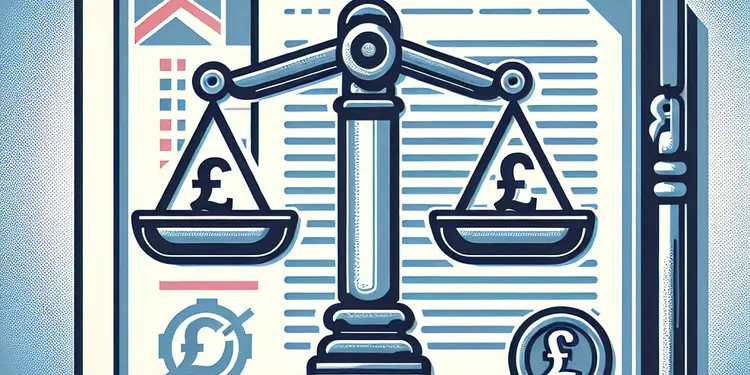
Landlord Licensing Laws Under Review as Tenants Call for Stronger Protections
Relevance: 43%
-

Proposed Welfare Cuts and Their Impact on Vulnerable Populations
Relevance: 43%
-

When are the proposed cuts expected to take effect?
Relevance: 43%
-

Are there any groups exempt from the proposed cuts?
Relevance: 42%
-

What is the relationship between rising rents and housing benefit cuts?
Relevance: 41%
-

Why is the UK cutting funding to AIDS, Tuberculosis, and Malaria research?
Relevance: 40%
-

What advocacy efforts are being undertaken to resist the cuts?
Relevance: 40%
-

Legal Aid Cuts: Campaigners Warn of Access to Justice Crisis
Relevance: 40%
-

What is the main reason for the proposed cuts to housing benefits?
Relevance: 40%
-

Why is there a call for public consultation regarding the cuts?
Relevance: 40%
-

How can individuals contribute to the discussion on housing benefit cuts?
Relevance: 40%
-
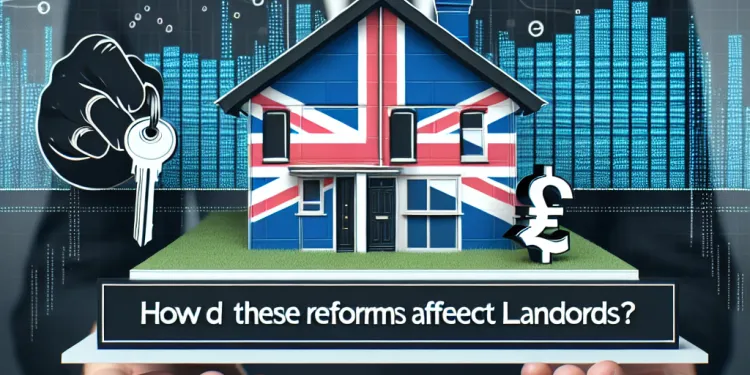
How do these reforms affect landlords?
Relevance: 39%
-

What changes affect pet policies in rented homes?
Relevance: 34%
-

How does inflation affect the situation with housing benefits and rents?
Relevance: 29%
-

Can eviction affect my credit score?
Relevance: 28%
-

What are the new Tenancy Law Reforms in the UK in 2025?
Relevance: 24%
-

How do funding and resources affect SEND support?
Relevance: 23%
-

How are landlord-tenant issues resolved in property litigation?
Relevance: 23%
-

Can I end a lease agreement early?
Relevance: 23%
-
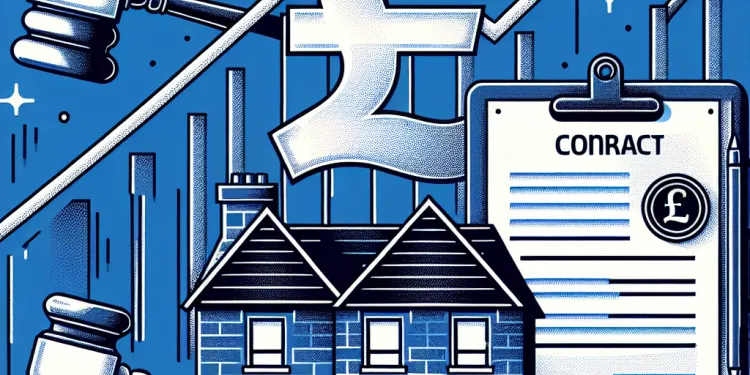
Are there changes to the eviction process?
Relevance: 23%
-

How does the reform impact renting costs?
Relevance: 23%
-
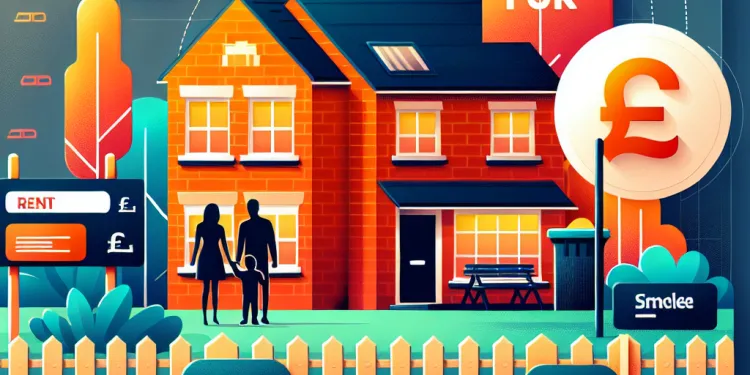
Can a landlord evict me for complaining about property conditions?
Relevance: 23%
-

How are rent increases regulated under the new law?
Relevance: 22%
-
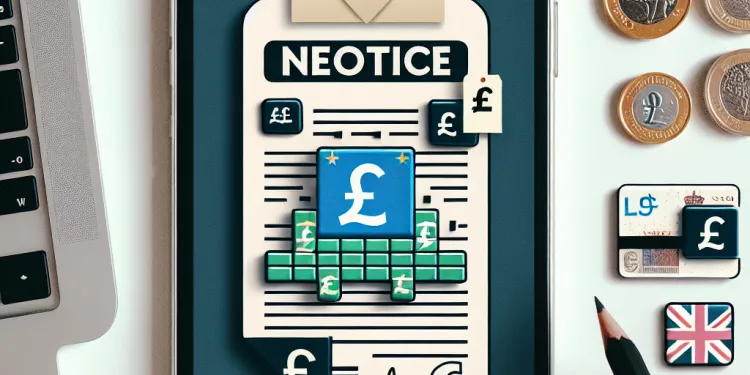
Has the notice period for eviction changed?
Relevance: 21%
-

Are there reforms concerning subletting?
Relevance: 21%
-

Are landlords required to provide energy performance certificates?
Relevance: 21%
-

How significant is the reduction in funding for AIDS, Tuberculosis, and Malaria research?
Relevance: 20%
Understanding the Impact of Cuts on Tenants
In the UK, tenants may face a range of challenges due to cuts, especially those affecting housing benefits and other welfare support. These cuts can lead to difficulties in affording rent, maintaining tenancy agreements, and securing new housing if needed. It is crucial for tenants to be proactive and aware of their options to mitigate these impacts.
Seek Financial Advice
The first step for tenants affected by financial cuts is to seek professional advice. Citizens Advice offers free, confidential guidance on managing debts and budgeting. Understanding one's financial situation and getting tailored advice can help tenants prioritize payments and identify any benefits they may still be entitled to.
Contact Your Landlord or Housing Association
Communicating with your landlord or housing association is vital. They may be able to offer temporary solutions or adjustments to payment plans. Some landlords might be open to negotiations concerning rent, especially if you have a history of timely payments. Transparency about financial difficulties can foster understanding and support.
Explore Local Council Support
Tenants can seek assistance from their local council, which may offer discretionary housing payments to help with shortfalls in rent. Each council has its criteria and processes, so it's essential to apply as early as possible. Councils may also have support services to give advice on housing options and rights.
Utilize Government Schemes and Benefits
Check eligibility for other government schemes and benefits such as Universal Credit, which can assist with living costs, including rent. The benefit cap may affect how much you receive, so it’s important to understand these restrictions. The government periodically updates these schemes, and staying informed will ensure you claim what you are entitled to.
Consider Tenancy Mediation Services
Mediation can provide a neutral space for tenants and landlords to resolve disputes and reach mutually agreeable solutions. This service can be particularly useful if rent arrears are accumulating, as it can potentially prevent eviction and maintain tenancy stability.
Understand Your Legal Rights
Tenants should be familiar with their legal rights under UK law, including protection from unfair eviction and the right to live in a safe and adequately maintained property. Knowing these rights can help when negotiating with landlords or if facing eviction notices. Legal aid may be available for those who qualify.
Build a Support Network
Building a support network can provide emotional and practical support. Discussing issues with friends, family, or tenants' associations can lead to shared advice and resources. Peer support can be invaluable for navigating the stress and uncertainty associated with financial cuts.
Understanding How Cuts Affect Tenants
In the UK, people renting homes might face problems because of cuts. These cuts can make it hard to pay rent and keep their homes. It's important for tenants to know what they can do to handle these problems.
Get Financial Advice
If you are having money problems because of cuts, talk to a financial expert. Citizens Advice can help for free. They can guide you on managing money and bills. This can help you decide what to pay first and find out if you can get any benefits.
Talk to Your Landlord or Housing Association
It's important to talk to the person you rent from or the housing group. They might help you with new ways to pay rent or change your payment plan. Some landlords might let you pay differently if you usually pay on time. Being honest about money problems can help both sides.
Look for Help from Your Local Council
Your local council might help with rent if you don't have enough money. Every council has different rules, so apply early. Councils can also give advice on housing and rights.
Use Government Programs and Benefits
See if you can get help from government programs like Universal Credit. This can help with rent and other living costs. Be aware of limits on what you can get. The government changes rules sometimes, so stay updated to get what you deserve.
Think About Mediation Services
Mediation is where tenants and landlords can talk things out with help. It’s useful if you are behind on rent. It can help avoid eviction and keep your home.
Know Your Legal Rights
Know what the law says about your rights as a tenant. You are protected from unfair eviction, and your home should be safe. Knowing these rights helps if you have issues with your landlord. Legal aid might be available if you need it.
Create a Support Network
Having support from friends, family, or tenant groups is important. Talking to others can give you advice and help with resources. It can be a big help to deal with money worries and stress.
Frequently Asked Questions
What immediate steps can tenants take if they're affected by benefit cuts?
Tenants can review their budget, prioritize essential payments, and contact their landlord to discuss their situation.
Should tenants communicate with their landlords if they can't make rent due to cuts?
Yes, open communication with landlords is crucial. They may offer temporary solutions like payment plans.
Can tenants apply for any assistance to help with the reduced income?
Tenants should check eligibility for local or national rent assistance programs, and community support services.
What legal protections exist for tenants struggling with rent due to benefit cuts?
Tenants may have protections under eviction moratoriums or hardship provisions depending on their local laws.
How can tenants adjust their living situation to cope with benefit cuts?
Tenants may consider downsizing, finding roommates, or relocating to a more affordable area.
Are there budgeting tips for tenants facing reduced income?
Yes, tenants can track spending, cut non-essential expenses, and seek financial counseling.
Can tenants renegotiate rent with their landlords?
Tenants can try to negotiate a temporary or permanent rent reduction based on their changing financial situation.
What happens if a tenant cannot pay rent on time?
Tenants should inform their landlord and check if there are grace periods or late payment options in their lease agreement.
Can tenants access any government assistance during a financial crisis?
Many governments offer temporary relief programs; tenants should check local government websites for options.
Are there nonprofit organizations that can assist tenants in financial distress?
Yes, nonprofits may provide financial assistance, landlord mediation, or referrals to other resources.
What should tenants document if they anticipate not making rent?
Tenants should keep records of income changes, communication with landlords, and any financial aid applications.
Can tenants be evicted immediately for non-payment of rent?
Eviction laws generally require a formal process, but laws vary by location, so tenants should familiarize themselves with local regulations.
Should tenants seek legal advice if they're facing eviction?
Yes, legal aid societies or tenant unions can provide guidance on tenants' rights and options.
What mental health resources are available for tenants stressed by financial issues?
Tenants can access counseling services through community centers or hotlines for stress management support.
Is it advisable for tenants to use savings to pay for rent?
While savings can cushion financial hardship, tenants should balance immediate needs with long-term financial health.
Can tenants receive a rent freeze to alleviate financial pressure?
In some areas, rent freezes may be available, but they typically require negotiation and agreements with the landlord.
What role can tenant unions play during financial hardships?
Tenant unions can offer collective support, negotiate on behalf of tenants, and provide information on rights and resources.
What can tenants do if they feel their landlord is being unfair?
Tenants can contact local housing authorities, seek mediation, or obtain legal advice to address landlord disputes.
Are there online resources available for tenants to learn about their rights?
Yes, many legal aid websites and housing advocacy groups provide resources outlining tenant rights and protections.
How often should tenants reassess their financial and housing situation?
Tenants should regularly review their financial status, especially after major changes, to adapt and plan accordingly.
What can you do right away if your benefits are cut?
If your benefits are cut and you need help, here are some simple steps:
- Talk to someone at a help center or ask a trusted adult for advice.
- Look for local charities that can give you support.
- Contact your council to see if there is emergency help available.
- Set up a plan to manage your money wisely.
If reading is hard, you can use text-to-speech tools to read aloud. You can also ask someone to explain the steps to you in person.
If you rent a home, you can look at the money you have, pay for important things first, and talk to your landlord if you need help.
Should renters talk to landlords if they can't pay rent because of money cuts?
If you are having money problems and can't pay rent, talk to your landlord. This is very important.
Here are some helpful tips:
- Try to talk to your landlord as soon as you know there is a problem.
- Explain why you can't pay. Tell them about the money cuts.
- See if you can agree on a new plan to pay your rent later.
- Get help if you need it. You can ask a friend, family member, or find a local advice service.
Talking can help solve problems. It can make things better for both you and your landlord.
Talking to your landlord is very important. Your landlord might help you by letting you pay rent a little later or in smaller amounts.
Can renters ask for help if they have less money?
If you rent a home, see if you can get help with paying rent. Look for help from local or national programs. You can also find support from community groups.
What help can tenants get if they're having trouble paying rent because benefits were reduced?
If your benefits like housing benefit have been cut, and you can't pay your rent, there are things that can help.
You can talk to someone who knows a lot about housing, like a housing advisor.
They can tell you about special help called "Discretionary Housing Payment" from the council.
If you're worried about losing your home, speak to a local advice center or charity. They can help you understand your rights and what you can do.
People who rent might have rules to keep them from being kicked out of their homes. These rules depend on where they live.
What can renters do if their benefits are cut?
If your benefit money goes down, you need to change how you live. Here are some simple things you can try:
- Make a budget: Write down all the money you get and all the things you spend it on. This helps you see where you can save.
- Talk to someone: It's good to ask for help. Talk to your landlord or a support worker. They might have some ideas.
- Check what you get: Make sure you are getting all the benefits you can. There might be more help you can ask for.
- Find cheaper choices: Look for ways to spend less, like finding cheaper shops or sharing a home with others.
- Use online tools: There are websites and apps that can help you keep track of your money and find savings.
Remember, it’s okay to ask for help when you need it. There are many people and tools ready to support you.
People who rent a home can think about moving to a smaller place, getting a roommate, or moving to a cheaper area.
Can you give budget tips for renters with less money?
If you are renting a place and have less money, here are some tips to help you:
- Make a list of all the things you spend money on.
- Look at your list and see if there are things you can spend less on.
- Try to save a little bit of money each month. This is called saving.
- Use a calendar to remember when bills are due. This helps you pay on time.
- Use a calculator to help you add up your money. This shows you how much you have.
- Ask for help if you find it hard to do budgeting. You can talk to a friend or family member.
Yes, people who rent a home can keep an eye on how they spend money. They can stop spending on things they don't really need and talk to someone who can help with money advice.
Can renters talk to their landlords about changing the rent?
People who rent can ask their landlord to lower the rent for a little while or for good if they don’t have as much money anymore.
What if a person can't pay rent on time?
Sometimes, people might not have enough money to pay rent when it's due. Here’s what can happen:
- Talk to the landlord: It's a good idea to tell the landlord about the problem. They might agree to wait for the money.
- Check your agreement: Read your rental agreement. It will say what happens if the rent is late.
- Get help: Some places have services that can help with money problems. They can give advice or help you find other resources.
- Keep track: Use a calendar or reminder on a phone to keep track of when the rent is due.
Always try to handle the situation quickly and talk about any problems. This can make things easier for everyone involved.
People who rent a home (tenants) should tell the person they rent from (landlord) if they can't pay on time. They should also see if their rental contract has times when it's okay to pay late or different ways to pay.
Can people who rent get help from the government if they have money problems?
Lots of governments have short-time help programs. People renting homes can look at local government websites to find help.
Can nonprofit groups help renters who need money?
Yes, nonprofits can help you with money, talk to landlords for you, or give you information about other help you can get.
What should renters write down if they think they can't pay rent?
Keep Important Notes
If you think you can’t pay rent, write down some things. This is important and can help you.
Talk to Your Landlord
Tell your landlord if you can’t pay. Let them know early.
Write Down:
- Why you can’t pay rent
- The Date when you can pay
- Notes from talks with your landlord
Helpful Tools
Use a calendar to mark dates. This helps you remember.
People who rent homes should write down any changes in the money they earn, keep notes of their talks with the landlords, and save copies of any forms they fill out for help with money.
Can renters be made to leave right away if they don't pay rent?
Eviction rules are like a list of steps. These steps can be different in each place you live. It's important for people who rent their homes to learn what the rules are where they live.
Should renters talk to a lawyer if they have to leave their home?
If you are a renter and someone says you need to leave your home, it is a good idea to talk to a lawyer. A lawyer can help you understand what is happening and tell you what to do next.
Here are some things you can do:
- Find a lawyer who knows about houses and renting.
- Look for help from a group that supports renters.
- Ask a friend or family member to help you understand the papers you got.
Remember, you are not alone, and there are people who can help you.
Yes, there are groups called legal aid societies and tenant unions that can help you understand your rights as a renter and what you can do.
What help is there for people worried about money?
If you are feeling stressed about money, there are places and people who can help you feel better. Here are some ideas:
- Talk to a friendly advisor. They can help you make a plan.
- Join a support group to share and hear stories from others like you.
- Try simple relaxation exercises to calm your mind.
- Use apps that can help you with stress, like breathing exercises or calming sounds.
Remember, asking for help is a strong and brave thing to do.
If you rent a home, you can talk to someone for help. You can do this at places in your community or by calling a special phone line. They can help you feel less worried or stressed.
Should people use their savings to pay for rent?
Sometimes, people might need extra money to pay rent. They might think about using their savings. Here are some ideas to help:
- Think Carefully: Before using savings, think about future needs. Savings can help in emergencies.
- Make a Budget: Write down your money coming in and going out. This helps you see if using savings is a good idea.
- Ask for Help: Talk to someone you trust. They can help you decide what to do.
Remember, using savings is okay sometimes, but it's best to plan ahead!
Savings can help when money is tight. It is important for people paying rent to think about what they need right now and also what will be important in the future.
Can people who rent their home get help to stop rent from going up?
In some places, you might be able to stop rent prices from going up. This is called a rent freeze. To get a rent freeze, you usually have to talk and make a deal with your landlord.
How can tenant unions help when money is tight?
Tenant unions help people who rent their homes. They work together to support each other. They can talk to landlords for tenants and help get better deals. They also tell tenants about their rights and places where they can get help.
What can renters do if they think their landlord is not being fair?
If you rent a home and feel your landlord is not being fair, here are some steps you can take:
- Talk to your landlord: Try speaking to them about your concerns.
- Write it down: Keep a record of all conversations and problems.
- Ask for help: You can talk to a trusted friend or family member.
- Get advice: There are people and places that can give you advice, like citizen advice centers.
- Check your rights: Learn about your rights as a renter.
You can also use tools like reminder apps to keep track of dates and deadlines. Reading tools may help make understanding information easier. Visual aids like pictures or diagrams can also help explain your situation clearly.
If people have problems with their landlord, they can do a few things for help.
They can talk to a housing office nearby. This is a place that knows about houses and can help.
People can also ask someone to help talk between them and the landlord. This is called mediation, and it helps to fix problems by talking.
Sometimes, it helps to talk to a lawyer. A lawyer knows the law and can give good advice.
Can renters find help online to learn about their rights?
Yes, renters can find help online. Here are some tips:
- Use websites that explain renter rights with simple words.
- Look for videos that explain what rights renters have.
- Find online chat groups where renters can ask questions.
Tools you can use:
- Text-to-speech apps to read the text out loud.
- Dictionary apps to look up hard words.
Yes, many websites can help you understand your rights as a renter. These sites explain what you can do if you have problems with your home.
When should people renting a home check their money and living situation?
People who rent homes should often check their money situation. This is really important after big life changes. It helps them plan better.
Useful Links
This website offers general information and is not a substitute for professional advice.
Always seek guidance from qualified professionals.
If you have any medical concerns or need urgent help, contact a healthcare professional or emergency services immediately.
Some of this content was generated with AI assistance. We’ve done our best to keep it accurate, helpful, and human-friendly.
- Ergsy carfully checks the information in the videos we provide here.
- Videos shown by Youtube after a video has completed, have NOT been reviewed by ERGSY.
- To view, click the arrow in centre of video.
- Most of the videos you find here will have subtitles and/or closed captions available.
- You may need to turn these on, and choose your preferred language.
- Go to the video you'd like to watch.
- If closed captions (CC) are available, settings will be visible on the bottom right of the video player.
- To turn on Captions, click settings .
- To turn off Captions, click settings again.
More Items From Ergsy search
-

What can tenants do if they are affected by the cuts?
Relevance: 100%
-

How will the proposed cuts impact tenants?
Relevance: 68%
-

How will the cuts impact landlords?
Relevance: 62%
-

Who will be most affected by the proposed cuts to housing benefits?
Relevance: 58%
-

What are the proposed Cuts to Housing Benefits Amid Rising Rents?
Relevance: 56%
-

Is there any legal recourse for those affected by the housing benefit cuts?
Relevance: 54%
-

How do the reforms affect housing benefit tenants?
Relevance: 49%
-

What new protections are included for tenants?
Relevance: 49%
-

Is there a plan to offer additional support to offset housing benefit cuts?
Relevance: 48%
-

How are disputes between landlords and tenants handled?
Relevance: 46%
-

Can tenants apply for the Warm Home Discount?
Relevance: 46%
-

What are the potential long-term impacts of housing benefit cuts?
Relevance: 45%
-

What role do housing associations have amid these cuts?
Relevance: 45%
-

Landlord Licensing Laws Under Review as Tenants Call for Stronger Protections
Relevance: 43%
-

Proposed Welfare Cuts and Their Impact on Vulnerable Populations
Relevance: 43%
-

When are the proposed cuts expected to take effect?
Relevance: 43%
-

Are there any groups exempt from the proposed cuts?
Relevance: 42%
-

What is the relationship between rising rents and housing benefit cuts?
Relevance: 41%
-

Why is the UK cutting funding to AIDS, Tuberculosis, and Malaria research?
Relevance: 40%
-

What advocacy efforts are being undertaken to resist the cuts?
Relevance: 40%
-

Legal Aid Cuts: Campaigners Warn of Access to Justice Crisis
Relevance: 40%
-

What is the main reason for the proposed cuts to housing benefits?
Relevance: 40%
-

Why is there a call for public consultation regarding the cuts?
Relevance: 40%
-

How can individuals contribute to the discussion on housing benefit cuts?
Relevance: 40%
-

How do these reforms affect landlords?
Relevance: 39%
-

What changes affect pet policies in rented homes?
Relevance: 34%
-

How does inflation affect the situation with housing benefits and rents?
Relevance: 29%
-

Can eviction affect my credit score?
Relevance: 28%
-

What are the new Tenancy Law Reforms in the UK in 2025?
Relevance: 24%
-

How do funding and resources affect SEND support?
Relevance: 23%
-

How are landlord-tenant issues resolved in property litigation?
Relevance: 23%
-

Can I end a lease agreement early?
Relevance: 23%
-

Are there changes to the eviction process?
Relevance: 23%
-

How does the reform impact renting costs?
Relevance: 23%
-

Can a landlord evict me for complaining about property conditions?
Relevance: 23%
-

How are rent increases regulated under the new law?
Relevance: 22%
-

Has the notice period for eviction changed?
Relevance: 21%
-

Are there reforms concerning subletting?
Relevance: 21%
-

Are landlords required to provide energy performance certificates?
Relevance: 21%
-

How significant is the reduction in funding for AIDS, Tuberculosis, and Malaria research?
Relevance: 20%


